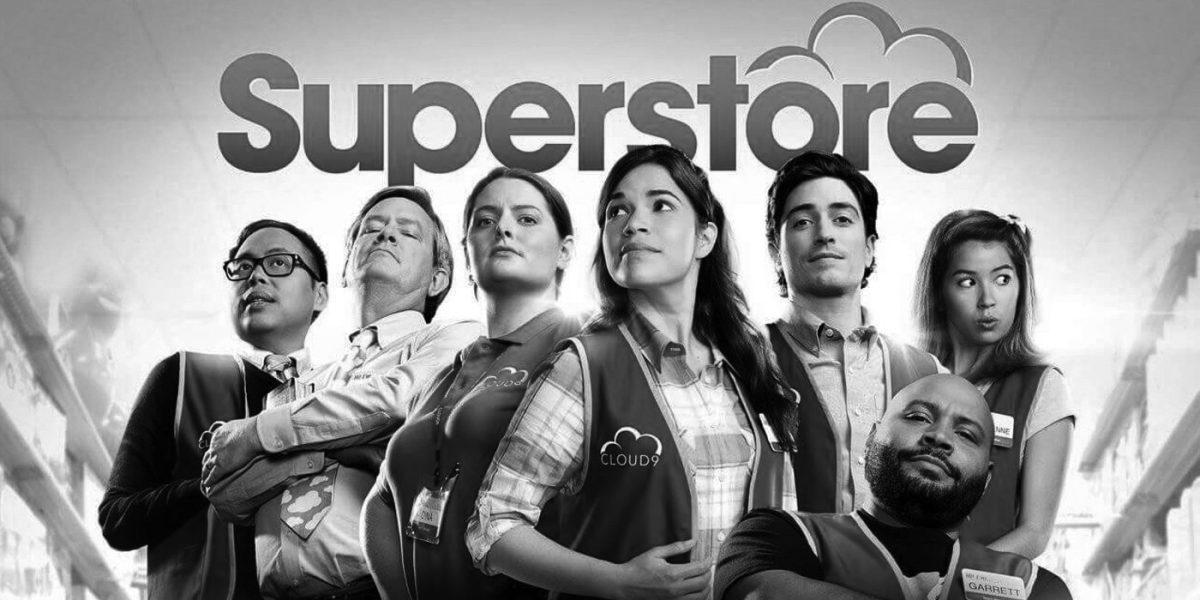NBC’s “Superstore” is known for making us laugh, but the show has taken on a serious topic in its fifth season. The show returned from hiatus this past Thursday, and has made it abundantly clear that comedies can stay light-hearted, while also taking on the responsibility to discuss serious issues in society. “Superstore,” as mentioned, is a sitcom on NBC that follows the lives of employees at a Walmart-esque store known as Cloud Nine.
In the season four finale, one of the main characters, Mateo, is detained by the U.S. Immigration and Customs Enforcement (ICE). Mateo’s status as an undocumented immigrant has been a theme in the show for quite some time, but the season finale that aired May 19 brought Mateo’s story to a very dark place. In retaliation to the store’s employees considering unionizing, corporate sends in ICE. ICE raids the store, and, after a chase scene through the store, they ultimately find and arrest Mateo.
The new season addresses Mateo’s situation almost immediately, and has his best friend visit him while he is detained. He describes the terrible conditions in which he is being forced to live, as well as the awful treatment he faces. In addition to this, back at the store there is a group of characters working on breaking Mateo out. While it is comedic, it addresses the guilt one of the characters, Dina, feels about not being able to find him a way out of detainment.
This is significant because Dina’s character is known to be callous and extremely strict when it comes to policy and rules. The fact that she was so passionate about helping Mateo, and feels responsible for him being caught, is substantial. It makes the inhumane treatment that undocumented immigrants are put through very apparent. Mateo’s storyline is not the only serious topic that “Superstore” is taking on this season. The show is also making an effort to comment on the issue of machines and technology taking the jobs of human employees.
In the season five premiere, corporate sends a robot into the store that is supposed to manage tasks that the current human employees already do — organize items, clean aisles, etc. The robot is even comedically named after one of the human employees on the show, Glenn. Immediately, the characters are concerned for their jobs. They are afraid of being replaced.
Again, the show takes on this issue with comedic undertones — the robot malfunctioning, trying to control it and even throwing it off a building at the end of the episode. Ultimately, however, they are portraying a real issue, and one that will significantly impact college students, as we are about to enter the workforce.
At the beginning of this year, a summary report by Brookings Institution stated that over 36 million jobs, as recorded in 2016, are in danger due to “high exposure of automation.” Industries that are specifically in trouble include information technology (IT), manufacturing, service and banking. Wells Fargo & Company recently released a report stating that in the next decade, an estimated 200,000 jobs will be lost in the U.S. Banking industry due to technological advances.
As the characters in “Superstore” point out, companies will favor technology as opposed to human employees for the simple reason that they are not human. They do not need to be paid, they do not need health care or other benefits, and they never need time off. While the advancement of technology is undoubtedly a positive thing that benefits many, the dangers of some of those advances replacing jobs is real. Especially for people that are paying to receive a degree that is supposed to allow them to attain a job, it is extremely concerning.
It is important that shows like “Superstore” are voicing those concerns. “Superstore” is an excellent example of how comedies can stay funny and maintain their appeal, while also using their platform to comment and raise awareness on important social issues. Especially with the political climate we are currently in, it is vital that media portrays these issues carefully and accurately. “Superstore” accomplishes this perfectly, and I hope to see more of their commentary on immigration policy and the automation of jobs as the season continues.
For questions/comments about this story, email [email protected] or tweet @TheWhitOnline.
























































































































































!["Working with [Dr. Lynch] is always a learning experience for me. She is a treasure,” said Thomas. - Staff Writer / Kacie Scibilia](https://thewhitonline.com/wp-content/uploads/2025/04/choir-1-1200x694.jpg)








































